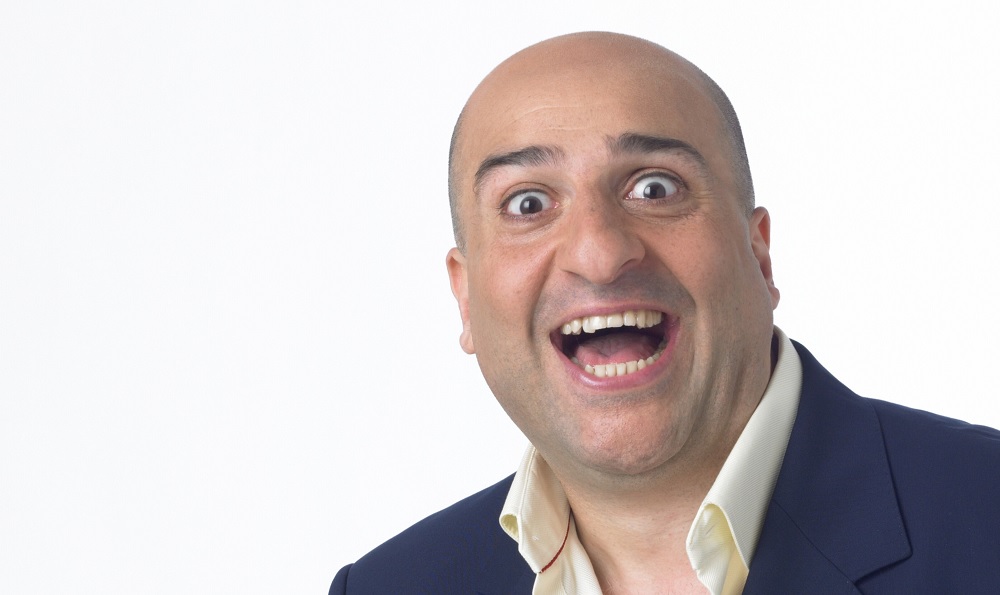Why we shouldn’t tolerate ‘jokes’ that deride the Welsh language as gobbledygook

Gareth Ceidiog Hughes
There are those who argue that Welsh speakers need to learn to take a joke.
According to some, we should just accept our language being the subject of derision because you know; the lolz.
Those who believe that don’t understand the damaging impact prejudice towards the language has had.
The ‘comedian’ Omid Djalili recently received a barrage of criticism for his unimaginative and crass take on a banal old trope.
He said: “There are worse things than being Welsh, dyslexic and having a terrible stutter. But not many.”
Djalili made the comment while posting a picture of the National Botanic Garden, or Gardd Fotaneg Genedlaethol in Welsh.
You see it’s funny because it’s a different language; get it!? No me neither.
Any language seems like a garbled mess if you don’t understand it; including English. It’s not that the structure doesn’t exist. It is just you have not learned to decipher it.
While easy to dismiss as ignorance, these kinds of attitudes have serious repercussions. State policies designed to undermine and suppress the Welsh language were underpinned by the idea that it was inferior to English.
They formed the basis of the officially sanctioned hatchet job on the Welsh language and education published in 1847 that came to be known as The Treachery of the Blue Books (Brad y Llyfrau Gleision). It smeared the Welsh as ignorant, lazy and immoral, and said the Welsh language was to blame.
This laid the foundation for much of the discrimination that followed.
It allowed Welsh to be banned in schools and inspired teachers to beat up and abuse children for speaking it.
The Welsh language had already been banned from the courts and from public employment.
The same ideas were behind the language whitewashed from road signs. I could go on. The list isn’t exactly endless, but it really is very long indeed.
Deriding the language as gobbledygook as Djalili did is to buy into this insidious, prejudiced and deeply damaging paradigm.
The jibe was an expression of anglo-supremacist chauvinism. It was odd and dispiriting to see an English man of Iranian heritage taking the same side as uber-bigots Rod Liddle and Katie Hopkins when it comes to the Welsh language. For someone who has spoken out passionately against racism and for religious tolerance, finding themselves in that company should be a great cause for concern.
Djalili is an adherent to the Bahá’í Faith. It is a religion teaching the essential worth of all religions, and the unity and equality of all people. Unfortunately, that unity and equality evidently doesn’t stretch to linguistic minorities in his case.
Spectrum
The Welsh language survives because its speakers rejected the idea that they were inferior. They rejected the idea that they did not deserve education in their mother tongue. They rejected the idea that they did not deserve the same respect as their non-Welsh speaking neighbours when accessing public services. They rejected the idea that they did not deserve road signs and a television channel that reflect the heritage and the living, breathing culture of the country they live in.
Rejecting the idea that the language is inferior also means rejecting the prejudiced jokes that are based on the premise that it is. It means rejecting jokes like Djalili’s. It means calling them out and asserting that our language is of value, as are the people who speak it.
Jokes aren’t just jokes. To take an extreme example, racist jokes about black people being likes apes were used to justify treating them as sub-human and the abomination of slavery.
Should black people not mind being compared to apes because slavery was abolished in the USA? If you don’t know the answer to that rhetorical question, then God help you.
You might say well racism is far worse than anti-Welsh language bigotry. My response that would be, well duh. Of course it is. You’d be pushing at an open door with me on that front.
But bigotry exists on a spectrum. My point is not to argue that they are exactly the same. However different forms can and do share characteristics, with stupefying ignorance being just one of them; unjustifiable arrogance being another.
The ideas behind jokes do matter. Djalili’s joke was part of a familiar pattern of discrimination going back hundreds of years aimed at subverting the self-worth of a particular cultural community.
There are worse things than being a comedian using trite prejudiced tropes that aren’t funny; but not many.
Support our Nation today
For the price of a cup of coffee a month you can help us create an independent, not-for-profit, national news service for the people of Wales, by the people of Wales.






